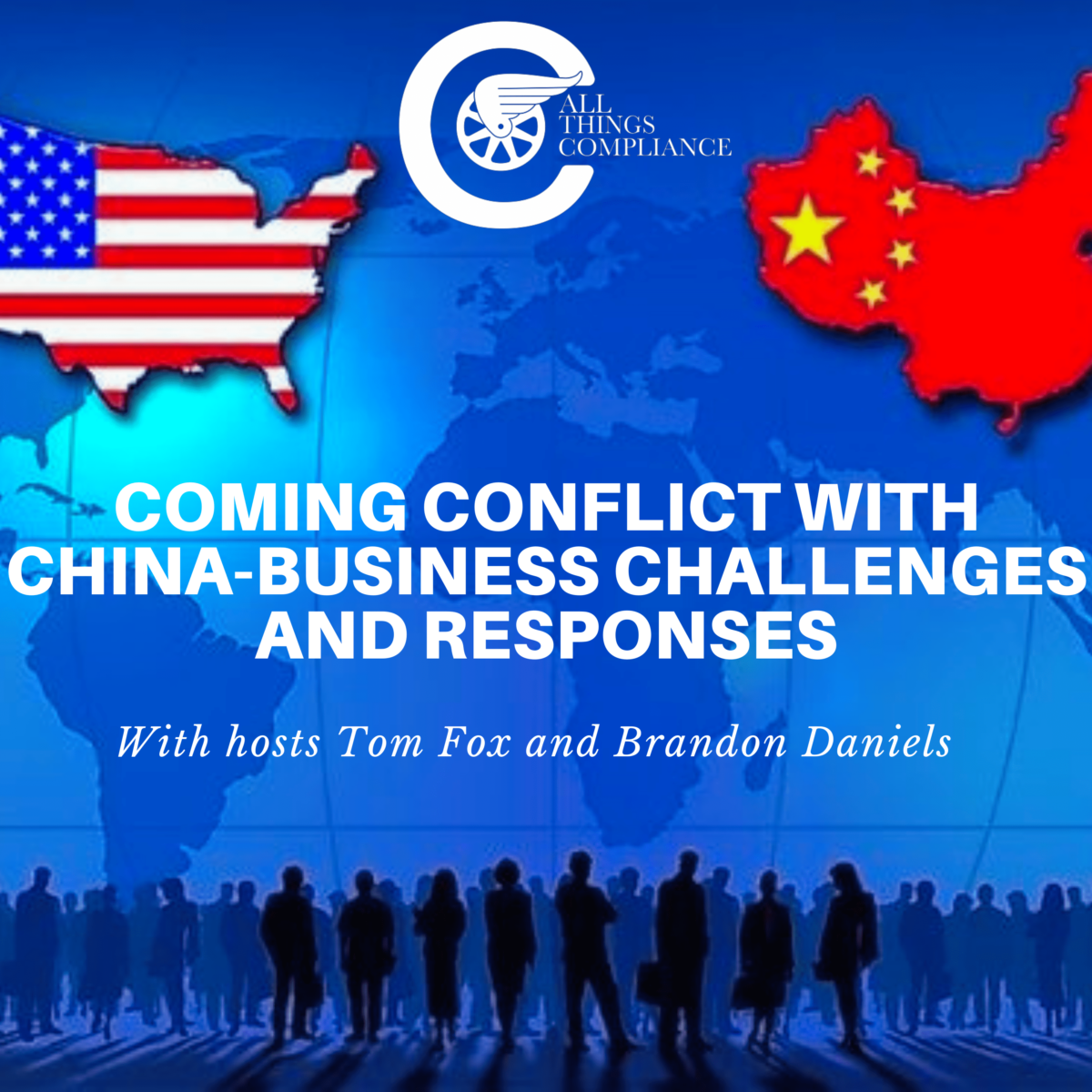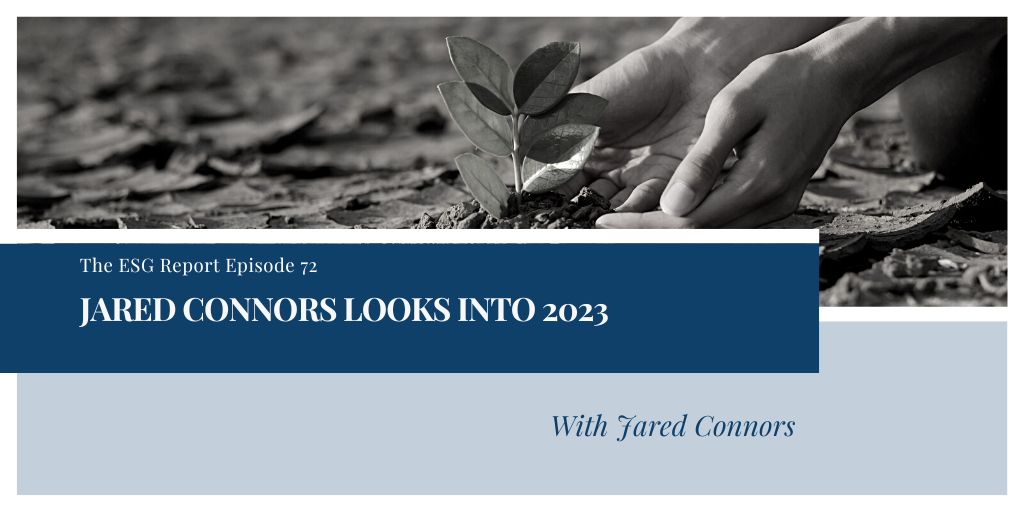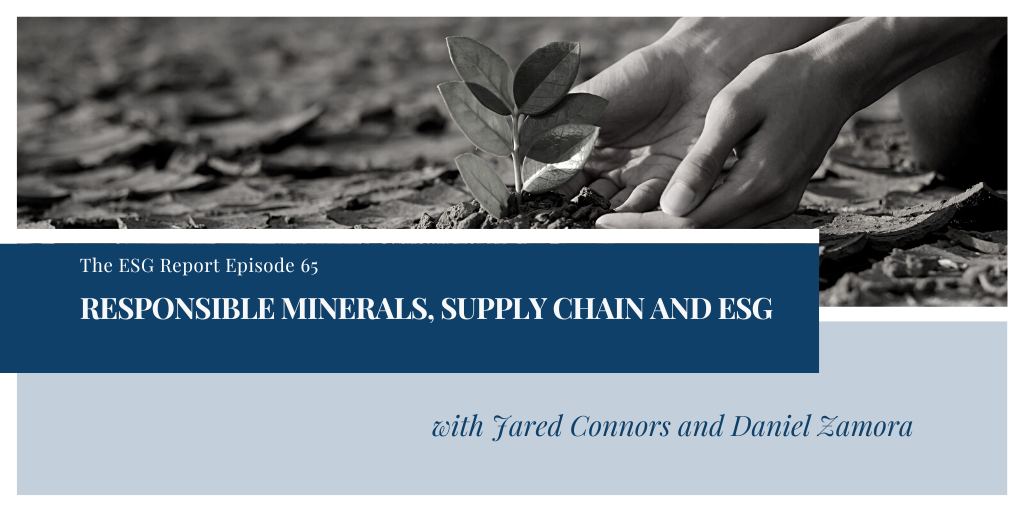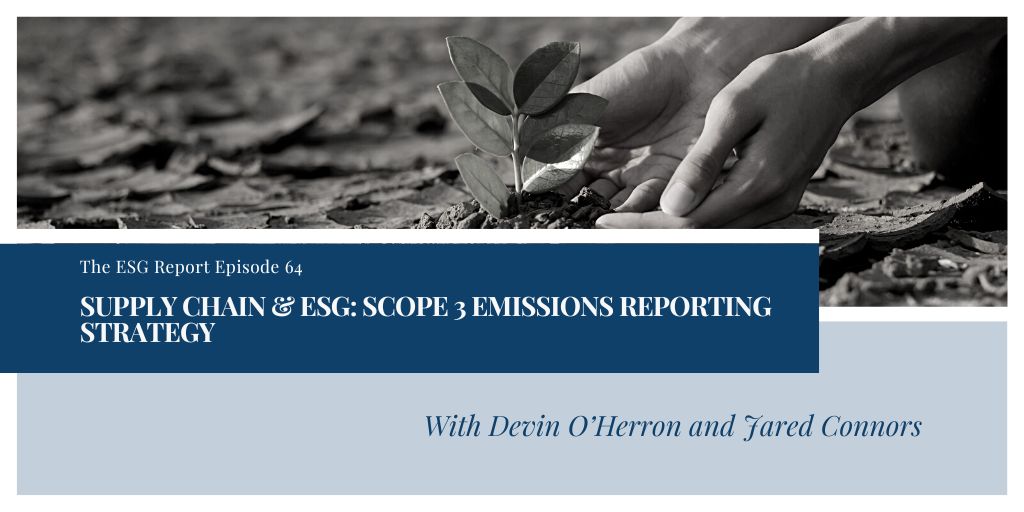In the short span of the 21st Century, the world’s two top powers, the United States and China, have moved inexplicably toward a showdown. This evolved from a commercial competition into something more akin to permanent non-kinetic warfare. What does this mean for US business doing business in and with China? For this special 5-part blog post series, I visited with Brandon Daniels, CEO and President of Exiger, to explore issues diverse as a real danger, supply chain, exports, cyber-attacks, and IP theft from the business perspective and give the compliance and business executive their viewpoints on what you can do to not only prepare your company but protect it as well. In Part II, we consider Supply Chain issues.
Have you ever stopped to consider the human rights abuses at the root of the products you use every day? From our solar panels to our computer screens, the exploitation of the Uyghur minority in China is a painful reality that has been hidden from Western consumers for too long. How has the global supply chain issues that have been enabled by this exploitation and how the geopolitical tensions with China must be addressed if we are to ever move past this human rights violation? In this blog post, we explore the implications of the Uyghur Forced Labor Prevention Act, the COVID-19 response, and the need to diversify our supply chains away from China if we are to bring balance to the world and ensure a fair playing field for everyone.
Here are some steps you need to follow to help you to shore up issues caused by China, impacting your Supply Chain.:
- Take the issue of Uyghur Forced Labor Prevention Act seriously.
- Diversify the supply chain to reduce risk of disruption.
- Invest in alternative sources of supply.
- Consider reshoring manufacturing to places like the US, UK, etc. with relative stability and free market.
- Invest in US manufacturing to increase innovation and provide security.
1.The Uyghur Forced Labor Prevention Act
Taking the issue of Uyghur Forced Labor Prevention Act seriously requires a comprehensive understanding of the human rights abuses taking place in the Xinjiang region of China. This region is home to the minority Uyghur people, who are subjugated by a paramilitary organization that controls all commerce and government functions. The production of items like neon, steel, lithium, and silica relies heavily on these subjugated people, driving down the cost of goods and manipulating economic markets. This is a clear violation of human rights, and it is not justifiable from any perspective. To take the issue of Uyghur Forced Labor Prevention Act seriously, companies must recognize the implications of this human rights violation and take actionable steps to diversify their supply chains, invest in alternative sourcing, and return manufacturing to the US. Taking these steps is essential in order to create a fair playing field and combat the human rights abuses taking place in Xinjiang.
- Diversify your supply chain
Diversifying the supply chain is key to reducing the risk of disruption from the conflict with China. Companies should look to invest in other countries in the Asia Pacific region such as Vietnam, Malaysia, and Cambodia, who are open for business and have less stringent regulations than China. Companies should also consider reshoring, which means bringing manufacturing back to the United States or other countries with more stable free market economies. This will help limit exposure to potential disruptions due to geopolitical tensions in China. You should review your long-term supply chain strategy, to include investing in alternative sources of materials and suppliers can help ensure continuity of operations and reduce the risk of disruption. Finally, companies should consider investing in research and development to create alternative sources of goods to diversify the supply chain and limit their exposure to potential disruptions from the conflict with China.
- Invest in alternative sources of supply
When considering how to address the issues of human rights abuses and Supply Chain interruptions due to China, it is important to consider investing in alternative sources of supply. Mexico, Vietnam, Malaysia, and Indonesia are all countries that offer alternative sources of supply, and they are more likely to be subject to less geopolitical tensions than China. To ensure Supply Chain security and to mitigate the risk of human rights abuses, companies should consider investing in these countries. This could include establishing manufacturing plants in these countries, as well as working with local vendors to source the necessary raw materials. Additionally, companies should consider investing in research and development in these countries to develop alternative technologies that are not dependent on Chinese resources. By investing in alternative sources of supply, companies can ensure a secure and ethical supply chain, which is essential for the long-term success of any business.
- Consider reshoring manufacturing
When it comes to considering reshoring manufacturing to more stable and free market sites such as the US, UK, etc.; the first step is to make sure to diversify your Supply Chain. This could mean making investments in alternative suppliers to ensure that the company is not solely reliant on one given country or region. Businesses should look into the opportunities of reshoring to the US and UK to take advantage of the 525,000 underutilized manufacturers in the US. Doing this could make it more cost effective and provide an additional layer of security in the event of a conflict with China. Lastly, companies should also consider investing in local manufacturing in the Asia Pacific region, such as in Vietnam, Malaysia, and Indonesia, to take advantage of these countries’ open for business attitude. This could help to bring about innovation and balance to the world’s Supply Chains.
- Invest in US manufacturing
Investing in US manufacturing is the fifth step in addressing the geopolitical tensions between China and the US. This step is essential to increase innovation and provide security. US companies must take seriously the idea of “reshoring” or bringing back manufacturing to the US. There are currently 525,000 manufacturers in the US that have the potential to be utilized. To make this possible, investments must be made in order to ensure that goods can be manufactured cost-effectively and with the highest quality. This will provide stability and security in the potential conflict with China, as well as providing innovative goods that are manufactured within the US. It may take time and money to invest in US manufacturing, but the potential reward is worth it.
The issue of Uyghur Forced Labor Prevention Act is a serious one, and companies must take proactive steps to ensure that their supply chains are secure and ethical. Diversifying the supply chain is essential in order to reduce the risk of disruption due to geopolitical tensions and investing in alternative sources of supply such as Mexico, Vietnam, Malaysia, and Indonesia is a great way to do this. Companies should investigate reshoring manufacturing to places like the US and UK, as this will provide an additional layer of security and help to create a fair playing field for everyone. Finally, companies should invest in US manufacturing to increase innovation and provide security. By taking these steps, companies can help to ensure a secure and ethical supply chain and combat the human rights abuses taking place in Xinjiang. With the right mindset and actionable steps, we can all make a difference in the world and create a better future for everyone.
For a deeper dive into these issues, check out the 5-part podcast series with Tom Fox and Brandon Daniels, here.







